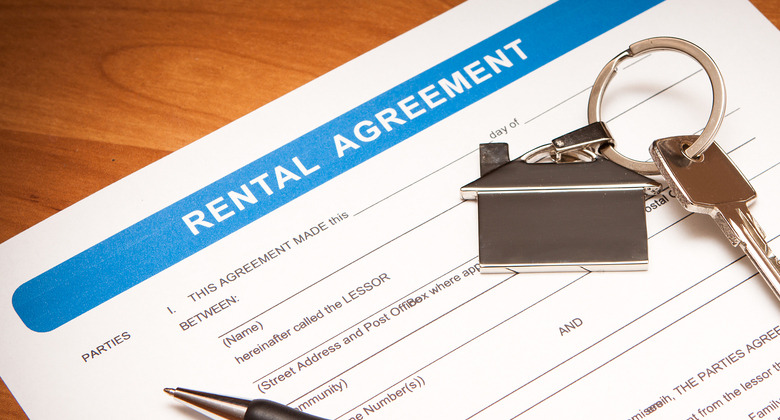Scottish Landlords: What Are My Legal Obligations as a Private Landlord?

Your legal obligations: Landlord Registration in Scotland
There are some landlord laws in Scotland that differ to the rest of the UK. The first requirement of a landlord wanting to rent out property in Scotland is they should be registered with their local authority. Similar to the requirement for HMO landlords in England and Wales, any landlord in Scotland must be screened by the local authority to ensure they are ‘fit and proper’ to rent a property. A landlord would not be considered fit and proper if they had committed any serious offences, such as fraud or violence, practiced unlawful discrimination or if they had broken any laws related to housing or landlord and tenant law. If a landlord in Scotland did not register before letting a property, they would be committing a criminal offence and could be fined up to £50,000, plus they would be banned from the register for up to 5 years. Provisions are made if a landlord starts to let their property but the local authority is still processing a valid registration application. The registration is valid for 3 years from the date of approval and must be renewed on expiry. There are some exceptions, such as the property is your only or main residence with two or less lodgers or it’s a holiday let, but you should check with your local authority. A landlord’s registration number must be displayed on any advertising of the property to be let.
Your legal obligations: Repairing Standard and Tolerable Standard
Before advertising, a landlord in Scotland must ensure they have met the Repairing Standard and the Tolerable Standard, which were introduced by the Housing (Scotland) Act 2006. The Repairing Standard means the property must meet a basic level of repair, including being wind and watertight, the structure and exterior are in a reasonable condition and water, gas, electricity and sanitation installations are in good working order. The Tolerable Standard is based on problems such as damp in the property, inadequate ventilation or natural light, or an electric supply that does not meet relevant safety standards. A landlord can carry out these assessments themselves by going through the property and making a condition report, and actioning any improvement or remedial work needed.
Your legal obligations: Electrical Installation Condition Report (EICR)
The Housing (Scotland) Act 2014 introduced new rules on mandatory electrical testing, and became statutory regulation from the 1st of December 2015 for new tenancies and from 1st of December 2016 for existing tenancies. The new rules require properties to have fixed wiring checks, known as an Electrical Installation Condition Report, at least every 5 years. The EICR must also include a PAT test (Portable Appliance Test) on portable electric appliances that you have included as part of the let. The check is not required on electrical appliances belonging to your tenant. Electricians carrying out this report must be competent and a member of either SELECT or NICEIC. In order for EICRs and PATs to be acceptable under the regulations, they must be documented on specified forms provided in the guidance. Although the law states that the checks are carried out at least every 5 years, it is recommended that it be carried out more often- particularly PAT tests that they advise should be annually checked. Enforcement of the regulations is the responsibility of the Private Rented Housing Panel (PRHP). The PRHP (Private Rented Housing Panel) settles disputes regarding rent and repairs, for example if a tenant reports a problem related to the Repairing or Tolerable Standard. For evictions, damages or other issues, a court would deal with this.
Book a PAT test for your property
Your legal obligations: Gas Safety Checks
Gas Safety checks are the same in Scotland as the rest of the UK, with the requirement for annual checks by a registered gas engineer. Fire safety requirements are also similar to England and Wales, especially since recent changes make it mandatory to fit smoke alarms on every habitable floor. The Domestic Technical Handbook, issued by the Building Standard Division, states there should be a smoke alarm in each room frequently used by occupants and in every circulation space (such as hallways and landings), a heat alarm in the kitchen and a carbon monoxide alarm. Although this handbook is for new building standards, the Repairing Standard advises that rented homes should match the standards as closely as possible. Also, since 2007, all alarms must be interlinked and mains powered.

Your legal obligations: Energy Performance Certificate (EPC)
EPC’s are a requirement for all properties in the UK, and a copy must be given to the tenant free of charge before they move into a property. In Scotland, however, a property cannot be advertised without an EPC, or at least the rating, displayed on the advert. There must also be an EPC displayed within the property. This is unlike England and Wales, whereby if an EPC has been commissioned then advertising can begin, provided a copy is given to the tenant before they move in when it is available.
Your legal obligations: Tenant Fees
Since 2012, a ban on fees charged to tenants has been in effect in Scotland following amendments to The Rent (Scotland) Act 1984. The law states that any fee other than rent and a refundable deposit is not allowed, which includes charges for referencing, tenancy paperwork, inventories and the renewal of a tenancy agreement. If a tenant is charged a fee for anything other than rent or deposit, they can reclaim from the landlord or letting agent. This ban preceded the announcement in the Autumn Statement 2016 that tenant fees will also be banned in England and Wales.
Your legal obligations: Legionella Regulations
Section 3(2) of the Health and Safety at Work Act 1974 (HSWA) does require landlords to ensure that their tenants are not exposed to health and safety risks and the Control of Substances Hazardous to Health Regulations 2002 (COSHH) provides a framework of actions to control the risk from a range of hazardous substances, including biological agents. This includes a requirement for landlords of both domestic and business premises to assess the risks of exposure to Legionella. The rules aren’t unduly difficult to implement, but if you ignore them then fines of up to £20,000 may follow. While it is not a legal requirement to produce a Legionella water sample test certificate, a landlord may be liable to prosecution under the HSWA if a tenant were to contract Legionnaires’ disease from the water system in their home. The landlord would then have to provide evidence to a court that they had fulfilled their legal responsibility under HSWA and COSHH. A written record of a Legionella risk assessment would be considered adequate evidence by a court.
How Upad can help you as a private landlord
Here at Upad we're committed to helping you, as a private landlord, every step of the way. We want to help you succeed and be a great landlord while also enjoying the fruits of your labour.
To ensure you're up to speed on everything you need to know about being a successful landlord and meeting your legal obligations as a landlord, spend some time in the Upad Landlord Hub and also visit and subscribe to the Upad Blog.
If you're not already a Upad Landlord, register for your Upad account here and begin exploring our products and packages to help you find tenants quicker and ensure you fulfil your obligations as a private landlord.










